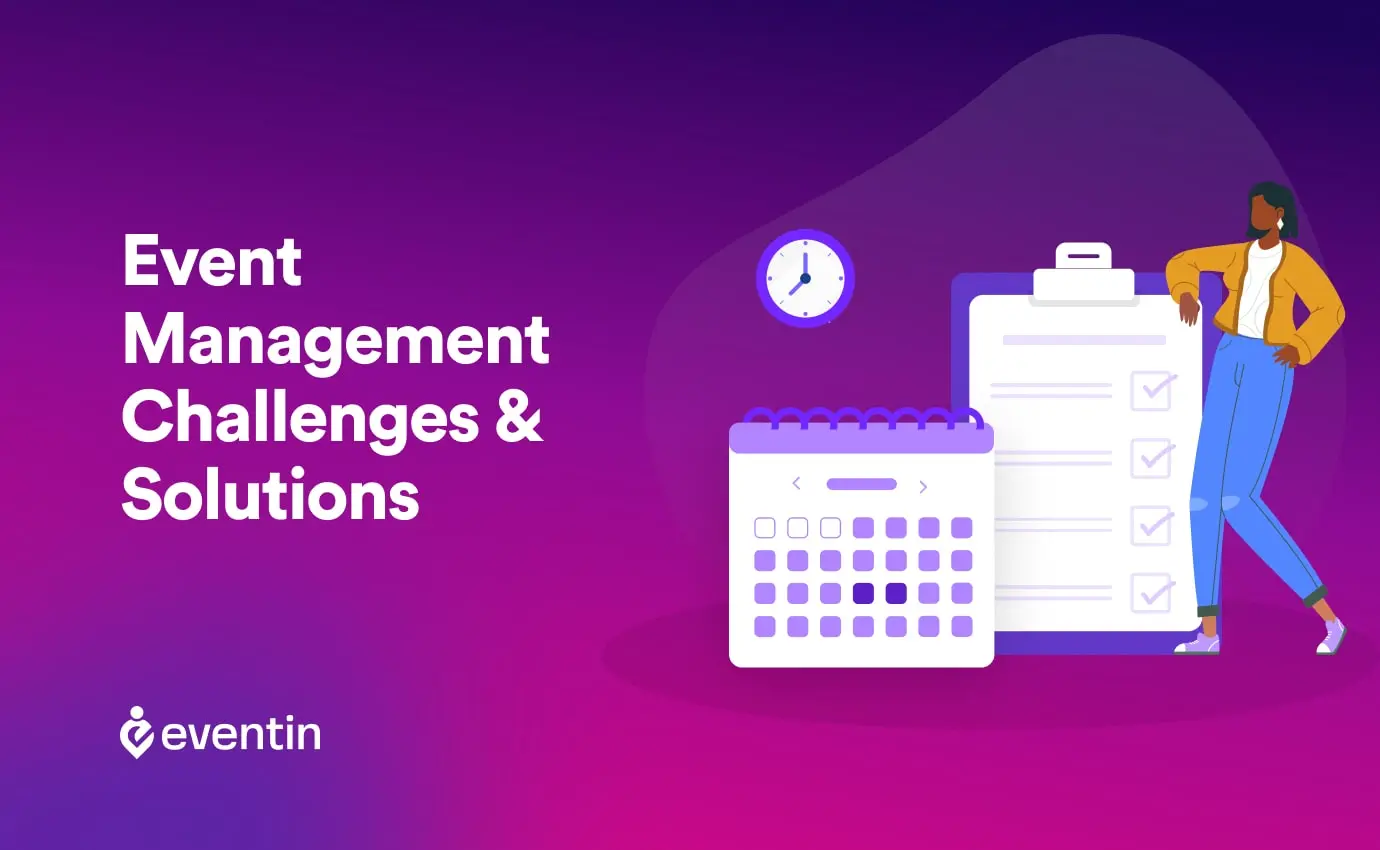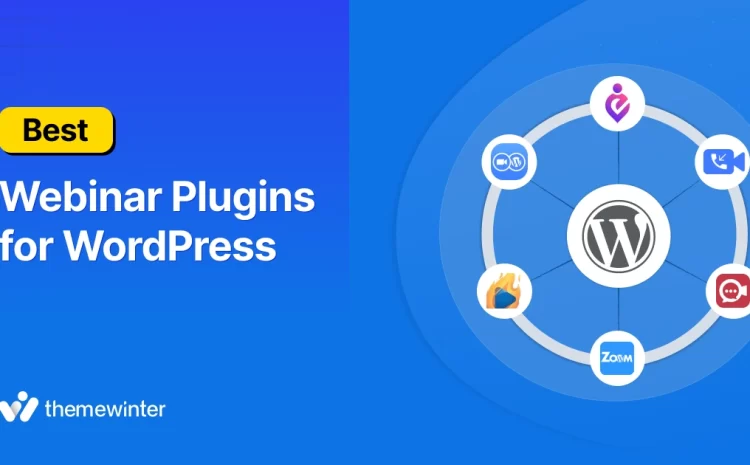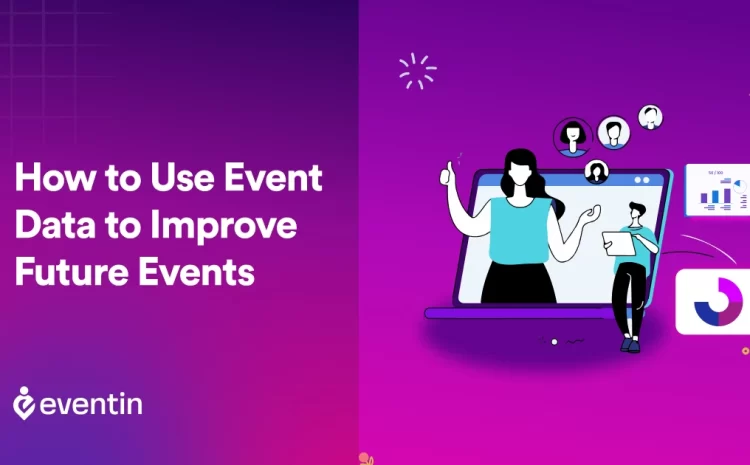8 Common Event Management Challenges (With Practical Solutions for Planners in 2025)

Planning an event sounds exciting, but it isn’t always easy. From setting the proper budget to keeping guests engaged, event planners often face many challenges along the way.
Even minor problems—like late vendors or poor time management—can quickly grow into bigger issues.
This guide breaks down the 8 most common challenges in event management and shows you simple solutions to handle them.
Whether you’re just starting out or already managing events, these tips will help you stay organized, reduce stress, and run events that people enjoy and remember.
Table of Contents
TL;DR: Common Event Management Challenges (and Quick Solutions)
Event planners often face recurring challenges—from budget leaks and tight deadlines to vendor delays and attendee engagement issues. Here’s a quick breakdown of the top 8 challenges and how to solve them:
- Budget constraints: Plan in detail, track in real time, keep reserves, and negotiate better deals.
- Time management: Build clear timelines, prioritize tasks, delegate smartly, and hold quick reviews.
- Vendor coordination: Select reliable vendors, use clear contracts, centralize communication, and send updates.
- Attendee engagement: Add polls/Q&A, personalize schedules, collect feedback, and stay active on social.
- Technology integration: Use event software, integrate with plugins, and track insights with analytics.
- Risk management: Assess risks, prepare backups, get insurance, and assign a crisis response team.
- Logistics & operations: Plan transport/setup in detail, assign on-site managers, and monitor in real time.
- Marketing & promotion: Research your audience, use multi-channel campaigns, and partner for reach.
Remember: With the right planning and tools, you can avoid common pitfalls and run smooth, successful events.
8 common event management challenges (and their solutions)

Event planning takes more than just creativity. It requires strong organization, clear communication, and careful attention to detail. No matter how experienced you are, specific challenges are almost impossible to avoid.
In this section, we’ll look at the most common event management challenges and share practical solutions to help you handle them with confidence.
If you’re starting, you may also find our guide on how to start an event management business from home helpful before diving deeper into these challenges.
1. Budget constraints
One of the biggest hurdles for event planners is managing money wisely. Clients usually want an impressive event, but the budget often feels too small to cover everything. Add in hidden costs, sudden changes, or last-minute needs, and it’s easy to go over budget without realizing it.
How to manage your event budget effectively:
- Create a detailed plan: Cover both significant costs (venue, catering) and small expenses (printing, signage, decorations).
- Track expenses in real time: Use event budgeting tools or an event budget planner to stay on top of spending.
- Set aside reserve funds: Always keep an emergency buffer for unexpected costs.
- Negotiate with vendors: Build long-term relationships to get better rates, discounts, or flexible payment terms.
🚀 Good Read: How to make your event as successful as possible with AI-powered event automation — Read more →
2. Time management in event planning
Time pressure is one of the toughest parts of event management. Planners often work with strict deadlines, and even a slight delay can throw the entire schedule off—leading to last-minute stress, overlooked details, and unhappy clients.
How to manage time more effectively:
- Build a clear timeline: Outline every task and deadline in advance. Tools like WP Timetics make it easier to track progress in real time.
- Set priorities: Focus on the most important tasks first so nothing critical is left unfinished.
- Delegate smartly: Assign responsibilities based on team members’ strengths, with clear roles and communication.
- Check in regularly: Hold short progress meetings to spot issues early and adjust plans when needed.
3. Vendor coordination in event management
Working with multiple vendors—like caterers, decorators, or audio-visual teams—can quickly become overwhelming. A single delay or miscommunication often disrupts the entire event flow, creating stress for both planners and clients.
How to streamline vendor coordination:
- Choose vendors carefully: Check reviews, references, and past work before finalizing contracts. If you’re running a larger platform with multiple suppliers, consider setting up a multivendor event marketplace to simplify vendor management.
- Set clear agreements: Make sure contracts clearly define deliverables, deadlines, and payment terms.
- Centralize communication: Use one platform or tool to keep all vendor communication in one place. This reduces misunderstandings and keeps everyone aligned.
- Stay in touch regularly: Send quick updates and check-ins to track progress and solve issues early.
💡 Good Read: Learn how to write a winning event proposal that secures clients and builds stronger vendor partnerships — Read more →
4. Attendee engagement in event planning
Keeping participants engaged is one of the most important parts of a successful event. If attendees lose interest, even the best-planned schedule can fall flat. Engagement comes from creating meaningful interactions, delivering personalized experiences, and keeping communication smooth throughout the event.
[eventin_ad_banner]
How to improve attendee engagement:
5. Technology integration in event management
Technology is now at the heart of event planning, but using it effectively can be a challenge. From event management software and ticketing systems to mobile apps and social platforms, planners often struggle to connect everything smoothly.
Without the proper setup, technology can create confusion instead of making things easier.
How to use technology more effectively:
- Adopt event management tools: Use dedicated software for scheduling, registrations, ticketing, and communication. If you’re on WordPress, check out these best WordPress event management plugins to simplify the process.
- Choose reliable platforms: Combine WordPress with trusted event plugins to host, promote, and manage events without unnecessary costs.
- Track data and insights: Use analytics to monitor attendee behavior, engagement levels, and overall performance to improve future events.
6. Risk management in event planning
Every event carries risks—bad weather, technical glitches, medical emergencies, or even security concerns. Without preparation, these issues can quickly turn a well-planned event into a disaster. That’s why risk management is a key part of successful event planning.
How to prepare for and manage risks:
- Conduct a risk assessment: Identify potential risks and evaluate how they might impact your event.
- Create backup plans: Always have alternatives, such as backup vendors, secondary venues, or emergency protocols. A detailed event planning checklist can help you stay ready.
- Get insurance coverage: Protect your event against financial losses, liability, or property damage with the right insurance.
- Build a crisis team: Assign a dedicated group to handle emergencies, communicate with vendors, and ensure attendee safety.
7. Logistics and operations in event planning
Logistics are the backbone of any event. From managing transportation and accommodation to handling on-site services and crowd control, even the smallest gap can disrupt the flow of an event. Successful logistics depend on detailed planning and real-time coordination.
How to optimize event logistics and operations:
- Plan in detail: Cover everything—transport, accommodation, on-site setup, and crowd flow—in a written logistics plan.
- Coordinate with vendors: Make sure equipment, catering, and services are delivered and set up on time.
- Assign on-site managers: Have a dedicated team on the ground to solve issues as they arise.
- Monitor in real time: Use tracking and monitoring tools to stay updated and make adjustments instantly. For large-scale or recurring events, see our guide on how to manage multiple events.
8. Marketing and promotion in event planning
Even the best event won’t succeed without strong promotion. Reaching the right audience, standing out from competitors, and attracting sponsors require a well-thought-out marketing strategy. Without it, events risk low attendance and missed growth opportunities.
How to market and promote your event effectively:
- Understand your audience: Research attendee preferences, behaviors, and demographics to shape your marketing message.
- Use multiple channels: Combine social media, email campaigns, blogs, and paid ads to maximize reach.
- Create compelling content: Share visuals, videos, and engaging posts that highlight why people should attend.
- Build partnerships: Work with sponsors, influencers, or partner brands to boost credibility and extend your reach. For a complete plan, check our guide on the best event promotion strategy.
📩 Highlight Feature: Email Automation Builder
Save time and stay connected with your attendees using Eventin’s Email Automation Builder! This drag-and-drop tool lets you create powerful email workflows that send messages automatically based on user actions—like ticket purchases, RSVP confirmations, or event reminders.
- ✅ Send confirmation emails after ticket purchase
- ✅ Automate RSVP responses instantly
- ✅ Schedule email reminders before your event
- ✅ Set delays, custom messages, and end automation flows
No coding. No hassle. Just smarter event communication.
Try It Now with Eventin →3 case studies of event management service

Case study 1: Corporate event success story
A corporate event planner faced the challenge of organizing a large-scale conference for a multinational company with a limited budget and tight deadlines. By using detailed budgeting, efficient time management, and leveraging technology, the planner successfully delivered a high-quality event that exceeded client expectations.
What was implemented as a solution?
- Created a detailed budget plan and tracked expenses using budgeting software.
- Developed a comprehensive timeline and delegated tasks to team members.
- Utilized event management software for registration and communication.
- Engaged attendees with interactive sessions and personalized experiences.
Case study 2: Wedding planning excellence
A wedding planner was tasked with organizing a high-profile wedding with multiple vendors and complex logistics. Through effective vendor coordination, risk management, and personalized attendee engagement, the planner ensured a successful and memorable event.
What was implemented as a solution?
- Thoroughly selected vendors and maintained regular communication.
- Developed contingency plans for potential risks, including weather disruptions.
- Personalize the attendee experience with custom schedules and recommendations.
- Utilize real-time updates and communication.
Case study 3: Festival management case study
An event planner managed a large outdoor music festival, facing challenges related to logistics, attendee engagement, and risk management. By optimizing logistics, leveraging technology, and implementing comprehensive risk management plans, the planner delivered a successful and safe festival.
What was implemented as a solution?
- Created detailed logistics plans and coordinated with vendors for timely delivery and setup.
- Used a virtual event management platform for ticketing, registration, and communication.
- Conducted a thorough risk assessment and developed backup plans.
- Engaged attendees with interactive content and real-time social media updates.
Frequently asked questions regarding the event management solutions
1. What are the biggest challenges in event management?
Some of the most common challenges include budget limits, time management, vendor coordination, attendee engagement, technology integration, risk management, logistics, and event promotion.
2. How can I manage event budgets more effectively?
Start with a detailed budget, track expenses in real time, and set aside emergency funds. Negotiating with vendors and using tools can also help. For a full breakdown, see our guide on event budget planning.
3. What is the best way to engage attendees at events?
Interactive sessions like polls, Q&As, and workshops, along with personalization and social media engagement, are some of the best ways to keep attendees interested. Learn more in our article on how to increase event attendees.
4. Which tools can help with event management?
Event planners often use project management apps, ticketing systems, and WordPress plugins. If you’re on WordPress, check our guide on how to choose the best event management plugin.
5. How do event planners handle unexpected risks?
They prepare backup plans, conduct risk assessments, get event insurance, and assign a crisis management team to respond quickly if something goes wrong. To cover the basics, explore our event management software for small businesses.
6. How can I promote my event to reach more people?
Use a multi-channel approach—social media, email marketing, paid ads, and partnerships. For practical steps, see our complete guide on boosting event marketing.
Final thoughts on overcoming event management challenges
Event planners must be adaptable, resourceful, and proactive in addressing challenges. By implementing the solutions discussed in this guide, event planners can deliver successful and memorable events that meet their objectives and exceed attendees’ expectations.
Continuous learning and staying updated with industry trends and technologies are essential for staying ahead in the ever-evolving field of event management.
To stay updated at all times, we continuously share helpful guides on our blog and Facebook community. Join us today and tackle the challenges.
📚 More Resources for Event Planners
Want to go deeper? Here are some additional guides and tools that will help you plan, promote, and run events more successfully:
- How to Get Sponsorships for an Event – Secure funding and partnerships to make your events profitable.
- Event Registration in WordPress – Simplify attendee sign-ups and boost participation.
- How to Create an Event Announcement – Spread the word and build excitement before your event starts.
- How to Increase Event Revenue – Practical tips to maximize profits from ticketing, upsells, and add-ons.
- Alternative to Costly Event Management Software – Discover affordable tools without losing essential features.


